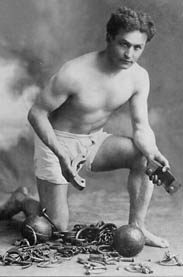In focus
Carol Abbott: Polices theses
Carol Abbott's job sounds simple enough: she's a thesis coordinator in the Graduate and Postdoctoral Studies Office (GPSO). In practice, she's part detective, part beat cop and part advisor.

Claudio Calligaris
Abbott and her colleagues processed nearly 1,000 master's and doctoral theses this last academic year. And while the hard part is over with for the students, Abbott's job just begins when the thesis is handed in at the counter on the fourth floor of the James Administration Building.
Abbott, along with Dean Barnes and Sandra Gibson, are the ones who ensure that all the "i's" are dotted and "t's" crossed when a thesis is submitted. There are a number of forms that come in with each one, and every thesis has to adhere to certain formatting standards and university guidelines and regulations. Thesis data, including information on all examiners, then needs to be entered into Banner. Abbott has responsibility for theses from seven different faculties.
A big part of her job is to arrange for external examiners to evaluate theses. It is this part where a little detective work comes in. The student and supervisor submit three names of potential reviewers to act as an external evaluator. For doctoral theses, this person must be external to the university, while for a master's they need only be external to the research conducted in the thesis. In either case, they could be from anywhere in the world, which can pose some organizational challenges. Of the three names, one will be chosen. They should not be friends or family of the student or supervisor, nor should they have contributed to the thesis in any way or pose any possible conflict of interest. Often Abbott needs to do a certain amount of research to ensure that this in fact the case.
"We check, as best we can. With the number of theses we get, we can't really go too far in depth," she said.
Getting an examiner isn't always easy. Oftentimes constraints of the potential reviewer, or the subject matter of the thesis will prevent many from agreeing to evaluate a document — sometimes all three will refuse and Abbott will need to go back to the graduate coordinator and supervisor to get more suggestions. Everyone contacted to be an examiner — whether within the department or outside, and whether they agreed to evaluate or not — is supposed to refrain from contacting either the student or their supervisor about the thesis until the examination process is complete as per the guidelines.
Abbott also processes evaluation reports when they come in, and then accepts and certifies the final corrected copy of the thesis for graduation. Theses are stored in the GPSO office until students officially graduate, at which point they are checked catalogued and sent off to McGill's libraries and (in the case of doctoral theses) the National Library in Ottawa.
She also deals with PhD oral defenses, after ensuring that the program requirements have been met, all reports have been received, that a Pro-Dean (a stand-in for the dean) has been secured and the committee is properly constituted.
Increasingly, Abbott is finding herself playing more of an advisory role, in addition to her regular responsibilities. She acts as a resource person to external examiners, supervisors, graduate program directors, graduate secretaries and coordinators, professors and students on university procedures and guidelines as they relate to thesis preparation, submission, and oral defenses.
Her favourite part of the job?
"I like when I receive a thank you. For instance, when I received a personal, handwritten thank-you note from a doctoral student's supervisor acknowledging my assistance in helping their student, or when a student thanks me for all my help via an email."
So, with so many theses crossing her desk, does Abbott ever stop to read any of them?
"There are some theses that come across your desk that you say to yourself, 'I wish I had time to read that.' Some of the topics are interesting — some of them I don't even understand the title."
 |
||||
|
For blood pressure, the lower it is the better. Even in the high-normal range, there is a substantial increased risk. |
||||
The man who killed Houdini
Seventy-eight years ago, on Halloween, the master illusionist Harry Houdini died. Nine days earlier, in Montreal, he had been punched several times in the abdomen by James Whitehead, a 31-year-old McGill theology student. Sam Smiley, then an Arts student at McGill, was in Houdini's dressing room at the time, on the performer's request. They had met earlier at Houdini's performance in the McGill Union Ballroom, and Houdini had been impressed enough with Smiley's sketches to ask him to do his portrait.

Harry Houdini
Sam Smiley's Story
I went to the theatre with a friend, Jacques Price, a student perhaps a little younger than myself; a nice fellow, but a nervous sort of boy.
While I was drawing [Houdini], in comes this Gordon Whitehead, a fellow about 40 or thereabouts. He was tall, at least six feet, smooth-shaven, almost bald, wearing a beige gabardine raincoat, and he was a divinity student, of all things. A student still at 40! He seemed brash and arrogant and I didn't like the intrusion at all. I didn't draw then as rapidly as I do now. He had a slight English accent and kept asking Houdini questions. He seemed to know him and was returning a book that he had apparently borrowed.
Whitehead said, "Mr. Houdini, I hear you can resist blows struck to the abdomen." Houdini wasn't so proud of his abdominal muscles. He told us, "My back and forearm muscles are like steel." We felt his arm and it was like steel. And then Whitehead pops the question, "Would you mind if I struck a few blows to your abdomen?" I suppose it was his professional pride. Houdini says, "Go ahead."
He was reclining on the couch, propped up on pillows. He appeared to brace himself, but Whitehead didn't waste any time. He bends over — he was tall, lanky — and delivers a few direct blows to the abdomen, a good four or five. I just sat there, mouth agape, not knowing what was happening. I thought the whole thing was just some lunatic performance. But my friend Jacques Price had more presence of mind than I. He grabs hold of Whitehead and shouts, "Are you crazy or something?" and pulls him off Houdini. Houdini says, "That will do. Stop there."
Whitehead says a few words and then leaves, and I finish the sketch. And Houdini says, "Will you sign it?" I say, "Certainly." And I sign it, "S.J. Smilovitz, Arts/27." And Houdini says, "You'll be hearing from me."
That was on the Friday morning. At any rate, a few days later there's a screaming headline in the paper: "Detroit Surgeons Say McGill Student's Blows Fell Houdini." Well, I didn't sleep that night, nor a number of nights after as he hovered between life and death — for five or six days I think, and he finally succumbed.
From Don Bell's new book The Man Who Killed Houdini (Vehicule Press). The book will be launched October 30, starting at 2 pm, at the McGill Bookstore on McTavish. Information: 844-6073.
 |
||||
|
In teens, instability may be programmed [into the brain] to allow for that transition from child to adult. It's normal. |
||||
